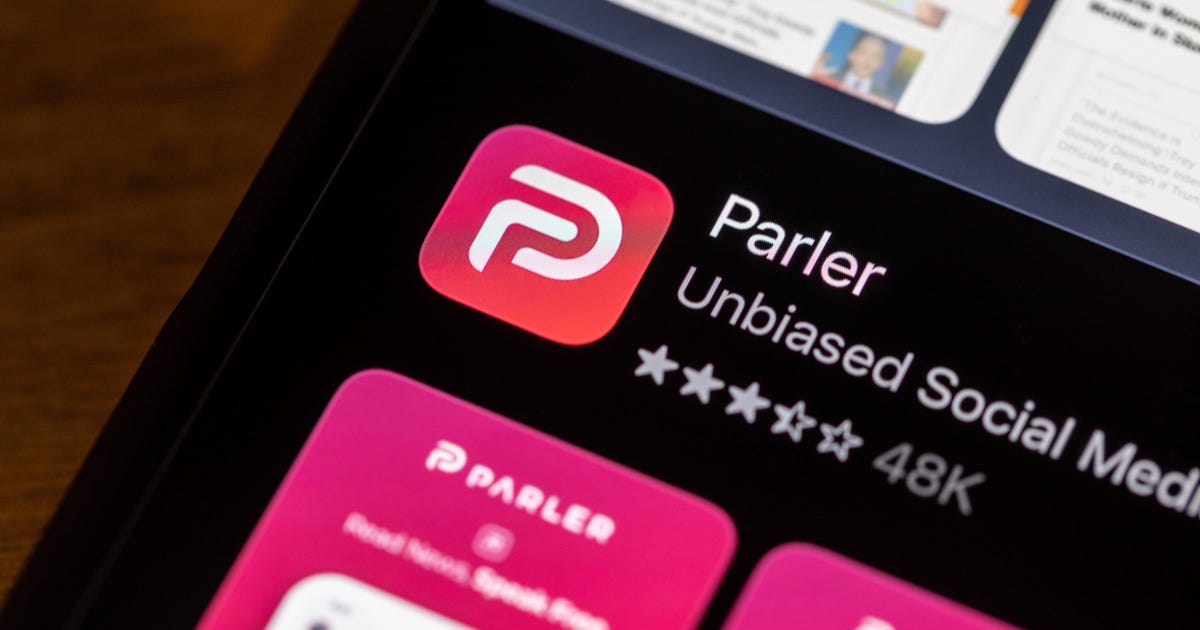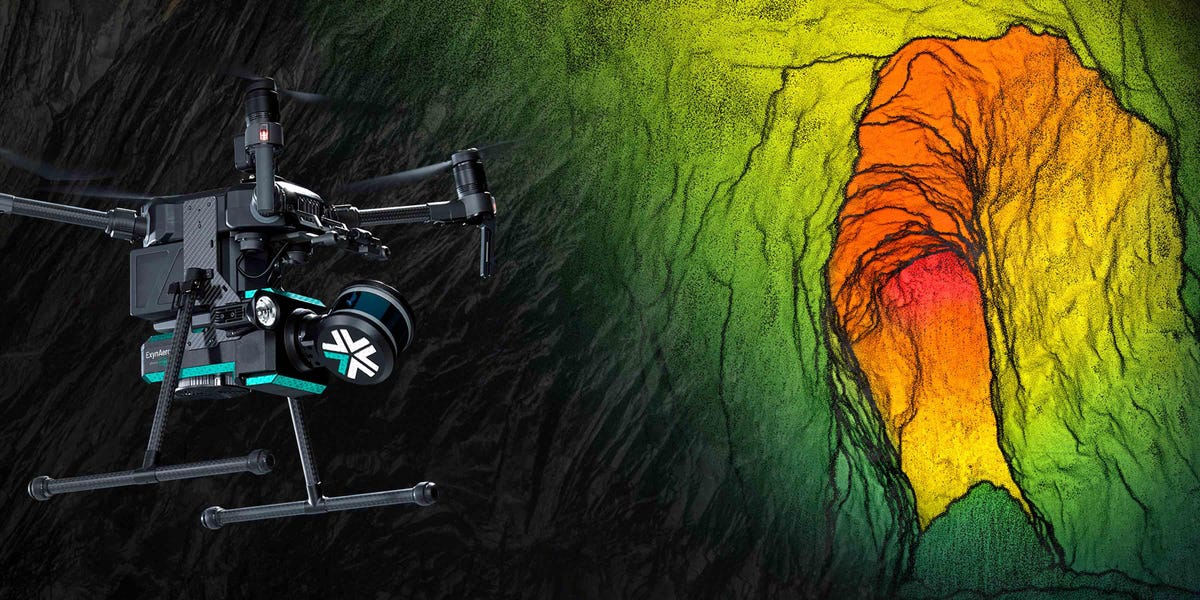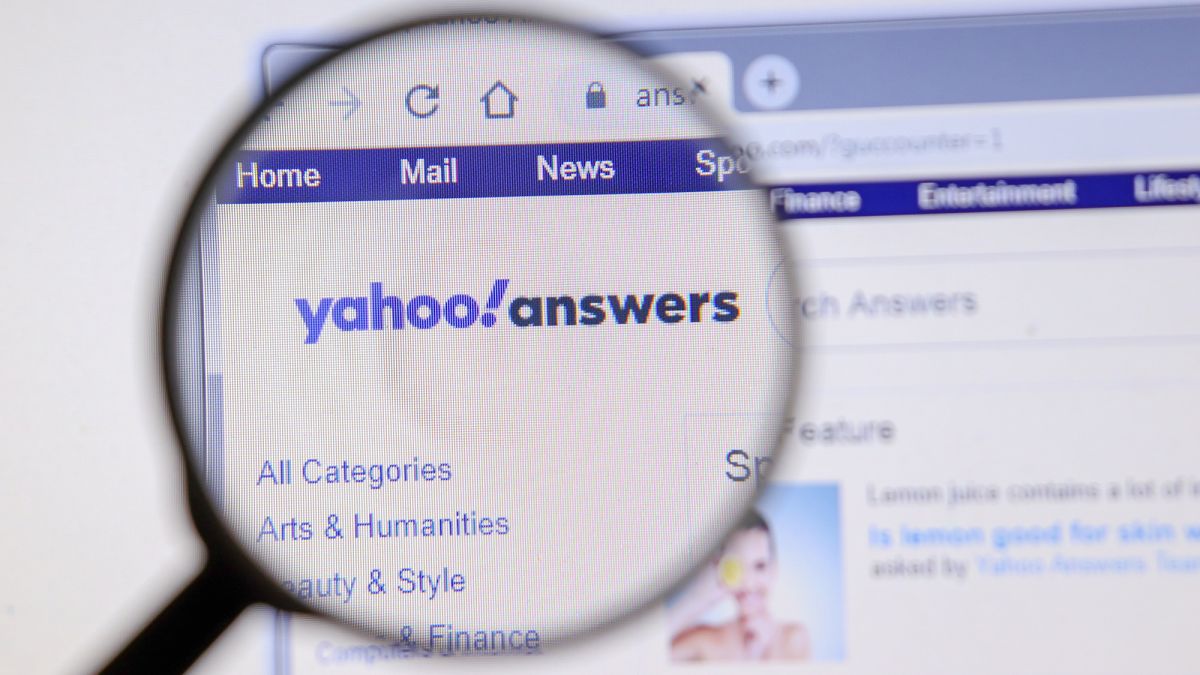It is time for the digital awards of 2021! This is a review of the year in digital technology, told with a bit of sass and snark. In keeping with the times, this year-in-review award ceremony will be a virtual experience.
And what a year in digital it was. Digital played a role in helping the world enjoy Mars, and it helped propel rumors that led to an insurrection on January 6. Somewhere in between it played a marvelous role in helping society slouch towards an apocalyptical future. Let’s make fun of it all!
The ground rules. To win an award the awardee must meet three criteria:
- The focal action or event must take place in 2021.
- It must involve something digital.
- It must generate at least one snarky observation.
No statues or gift-certificates or any compensation is associated with this award. No final spin of the wheel comes to the contestants. No extra booster shot at the local pharmacy will be provided. The sole benefit of winning is the fleeting 15 milliseconds of forgetting about this pandemic.
There are one dozen awards to go through. Let’s get to it!
- Best Short Movie. This award usually comes at the end of the ceremony, but after such a depressing year, it needs to be the first award. And, technically, this year’s award goes for YouTube videos. The votes are in, and it is a tie! But not a tie between rivals. Both awards go to NASA. No other entry this year came close to the videos of events on Mars. Let’s start with the landing of Perseverance on Mars. Oh, just watch it again. I still get chills, don’t you?

Then a few days later we were all treated to NASA scientists acting like kids with their first wireless toy. NASA had included a little helicopter on perseverance as an experiment in flight. They dared to see if they could get the little tiny flier up in the thin atmosphere of MARS. Their calculations and designs proved up to the task! The video came back. The flight of a helicopter on Mars looked short but spectacular. Still gives me goosebumps.
Then a big surprise. Like the energizer bunny of space flights, the little helicopter took to flying all over the place.
What do we learn from these great accomplishments? If we do not destroy our democracy, just look what the US can do.
2. No animals were killed while making this computer. The next award is the annual award for the most imaginative use of digital technology in a scientific experiment involving an animal. This year we have to give recognition to the scientists who put sensors on snails in order to track their movement. It is a slow moving scientific experiment. It operates at the same pace as the postal service. The sensors let them keep track even if the scientists could not keep concentrating on the snail’s every movement. Alright, just look at the picture.

The scientists had to create the world’s smallest computer that runs on a battery. The computer itself is slightly bigger than an aphid. It has a 2x5x2 millimeter sensor on it to measure light and transmit the signal back via radio frequency. They glued a little nut to the shell of the snail and then they could screw in the little sensor to the nut.
What was the purpose of all that digital inventiveness, you may wonder? I am not making this up. They learned that the predatory rosy wolf snail, an invasive species introduced five decades ago into Tahiti, does not like sunlight. The sole surviving other species of snail on Tahiti likes sunlight a lot more, because it has a white shell that reflects the light and lets it stay out in the sun longer without shriveling up and dying of thirst. That is why this white species of Tahiti tree snail survives.
Methinks those sensors could be put to another use. They should put an aphid computer on something a little faster and furrier, like my sister’s cat, Harriet. Perhaps they can figure out where that feline goes at night and how she survives. That is another mystery that needs to be solved.

3. Frontier use of digital video of the year. This award goes to the movie that stretches the limits of digital technology. This year it might be renamed the Most alarming video. For years Pixar and Disney have won this award with new visual feats of digital dexterity. They lost to this year’s winner, the chip maker NVIDIA, who wins for the following stunt. Nvidia made a computer generated video of its CEO and spliced in 14 seconds of fake video, right in the middle of real video. Not only was the avatar of the CEO fake, but so too was the kitchen behind him, which was made to look identical to his actual kitchen. Yet, nobody could tell the difference. Let me say that again. They did this during a regular announcement, and not a single viewer noticed. Either the reporters were really bored, or the fake video was realistic. I am going with the latter.

Why, oh, why, did Nvidia do this? It did it to publicize the power of their chips in simulations. Good for them. I am convinced. Wait. Wait. They did what? Isn’t that just a bit alarming? Think of the potential for deep fakes. If they could pull that stunt with their CEO, how about somebody with less congenial motives? How is anyone to know what is real and what is fake?
We expect Kim Jong Un, the supreme leader of North Korea, to soon make video replicas of himself so he can rule forever and anywhere. We also expect the Russians and Chinese to quickly get to work on making a deep fake of Donald Trump with whom they can make more mischief. And I do not want to begin to imagine what the ethically challenged parts of the internet will do to reruns of the Bachelor and simulations of the Kama Sutra. And that is before we think about what will come out of CEOs with infinite resources, such as Elon Musk and Mark Zuckerberg. That just gives me nightmares.
But I digress. Still, makes you wonder. What kind of virtual world are we passing to our grandchildren?
4. The best meme of the year. Speaking of fakes, it is time for celebrating memes. The winner uses the collective imagination of the internet hivemind to photoshop with creativity and humor. This year nobody caught our winner and his mittens.
You guessed it! The winner is the Bernie Sanders meme. A picture taken from the inauguration became a meme. It transformed Bernier Sanders from his status as an aging and irrelevant Senator into an aging and irrelevant amusing internet icon! It could not have happened to a crankier guy. Just look. Sanders has been transported into Yalta, Mars, the Game of Thrones, Mean Girls, and my personal favorite, the Teacups ride at Disneyland.





I always get nauseous on the teacups. Looks as if Bernie does too.
5. Best use of the Digital Frontier for Noble Purposes. This is a new award. It had to be invented just so we could talk about this feel-good story. Sir Tim Berners-Lee, who just seems to walk on water without trying, auctioned the original source code for the World Wide Web in the form of a Non-Fungible-Token, or NFT. For those of you who missed this craze, NFTs take something digital, authenticates it as unique using some blockchain, and then (usually) auctions it off to the highest bidder. You can find an NFT made from basketball shots and old memes and anything that lacks corporeal form and whose entire existence is virtual. For example, see this article about some of the other NFTs that have been auctioned.

TBL’s NFT eventually fetched $5.4 million at auction, which TBL and his spouse could apply to initiatives of their choice (so says the news, though it does not say specifically what initiatives that might be).
What is more unbelievable here? That TBL put together an NFT of his source code, or that somebody actually has five million dollars just lying around to pay for it? Either way, it all sounds rather nifty to me.
6. A Terrible, Horrible, No Good Very Bad Day. This award goes for the most visible haplessness among major firms, and in the last few years has become a two-company contest between AWS and Facebook. This year it has to go to Facebook for its six hour episode on October 4th. Oh, sorry, the firm is called Meta now. (What’s a Meta? I dunno’. What’s a meta with you?) Names matter less than what transpired. Not only did Facebook go down for six hours. So did Instagram and Whatsapp, and anybody else who used Facebook credentials for a password.
What actually happened? It seems they outsmarted themselves during a reboot. Their own internal systems went down, and those supported the electronic security for accessing the necessary rooms needed to reboot the systems that went down. Eventually they had to find somebody who had a physical key to open the door.
Internet nerds can appreciate what happened next. While they were looking for the person with the key, as a technical matter, Facebook had effectively withdrawn itself from the internet, and did not respond to any query. What happens when the most popular destination on the internet stops answering its pings? It is best explained by Cloudflare’s blog, which states, “… apps won’t accept an error for an answer and start retrying, sometimes aggressively, and…. end-users also won’t take an error for an answer and start reloading the pages, or killing and relaunching their apps, sometimes also aggressively.” Traffic just jumped as none of those connections succeeded. For six hours the internet went crazy.
/cdn.vox-cdn.com/uploads/chorus_image/image/69981156/1235715452.0.jpg)
This happened in the same week the Whistle blower, Francis Haugen, testified in Congress. Needless to say, this was not good for the stock price. (And, in case you are wondering, no, Ms. Haugen will not be winning any award this year. Basically, she is doing such a public service, there is nothing snarky I could say about it.)
7. Best supporting Act. Speaking of the world falling apart in a spit of haplessness, this year got off with a bang. Literally. On January 6 in Washington D. C. In case you were asleep for months, here is a reminder of what Fox News says. Tens of thousands of non-delusional non-deplorables decided to visit the capital building as, um, tourists and hold a, um, peaceful rally, which involved listening to the outgoing president rehashing unsubstantiated conspiracy theories over the election he lost. They became agitated only when they learned the doors were closed for official government business, such as, um, counting the electoral votes from the presidential election. But these Patriotic Americans would not be denied their visitation rights, and closed windows and locked doors would not stop them! No sir! They wanted to witness democracy in action, or, failing that, destroy the rituals underpinning its continuation.

The revolution would be televised. Right into the white house, where, apparently, Donald Trump just watched and did nothing. Let me say that again. In spite of pleas from his own staff, he did nothing for hours. (I am not much of a partisan guy, but I do respect decency and facts, and I do think my children ought to benefit from the US experiment with democracy, and in what world was this behavior acceptable?)
Oh, but I digress again. Back to the main point. We are here to give an award. The insurrection contained a digital component from start to finish, so there are many candidates. The insurrection was planned and documented on power point slides, motivated by unsupported assertions on social media, elevated to a righteous crusade by dubious legal theories that thousands of Twitter bots could mindlessly support. It also was aided by a poorly designed web site. The award goes to….drum roll please… the website Parler.
Remember Parler? This is the website whose entire contents were exposed by a simple hack . To be sure, the hack was helped by the website’s designer who did not delete material when the user pressed delete, but, instead, took the route of the lazy programmer and merely left the material on the company’s servers without visibility. All 56 terabytes of data are now online for any researcher to inspect. These events demonstrate the utter truism that paranoia alone can never protect anyone in cyberspace unless it is backed up with basic encryption.

Let me say that again. The main website used by most of those involved in the insurrection of January 6 contained no encryption and no effective deletion. Oh, by the way, did I mention that another website has now published every face from Perler’s insurrection videos?
8. This next award is the James Bond Award. It goes to the event in digital life that comes closest to being a scene in a James Bond movie. Perhaps more fittingly, this year it should be renamed, Revenge is a dish best served cold. This award goes to the cyber-blackmail organization formerly known as Darkside Ransomware-as-a-Service. You may recall that this is the shady organization full of ethically-challenged Russian programmers that held up the Colonial Pipeline for six days, which resulted in some people not getting the natural gas they needed to heat their stoves and cook their homes. (Or was it the other way around?) The folks at Colonial Pipeline could have been nominated for an award in another category for not taking precaution, but Darkside really deserves one, so let’s focus on them.
Darkside had become so shameless about their activities they openly participated in conversations with other Ransomware groups, and advertised their services to the highest bidder. To be sure, you may have regarded their behavior as too brazen. You may have been one of those old-fashioned decent humans who believed these sorts of services were supposed to stay in the shadows. You may even have been one of those naive parents who does not want their daughter to come home with a boyfriend who did this for a living. Lucrative as cyber crime might be, it is not an honest and respectable way to earn a living, as my grandfather used to say.

Apparently, others in white-hat cyber security community held such naïve beliefs, and judging from what happened, they may have had some allies within the US government. Long story short, a week after the Colonial attack was resolved, Darkside found themselves without a system to accept payments, without a blog, without servers, and their digital saving drained from its digital currency accounts. Indeed, the most popular digital currency exchange service for these characters was also disabled. In short, just like that, it all disappeared overnight, as did their latest winnings.
Not only did all those ill-gotten gains disappear, but so too did the impunity these fellows thought they had. This could not have happened to a nicer group of guys.
9, The Terminator Award. This award goes to the event or person that took a significant step towards realizing the creation of robots capable of destroying humanity. It is a sardonically cheerful award to remind us that humanity has not destroyed itself yet, an accomplishment worth celebrating, even if surely we will soon. This year it goes to the creators of a Level 4 Autonomous Flying Drone. First, in case that sounded like gobbledegood, here is a translation. Level 4 are vehicles that lack drivers in real time, so the machine entirely drives itself, and makes all decisions in most situations. Intervention is restricted only to select moments, like emergencies. The wonderful thing about Level 4 vehicles is that they are not Level 5. A level 5 vehicle contains no safety valve. In other words, we can all cheerfully agree that the terminator is not here yet.

Here is the thing about the terminator award. The path towards it is lined with good intentions. In this case, dear reader, think “mines.” Mines are unsafe, especially for more than just humans with claustrophobia. They contain gasses that kill canaries. They are deep in the ground where rocks can fall and water can flood and tunnels can disappear. For centuries humans have looked for ways to try to make mines safer. Back in the day, such issues motivated a guy named Watt to create a steam engine with a separate condenser to pump water out of mines, which is another way of saying humanity has been tackling this problem for a while. So I can respect that somebody figured out how to send a drone down a mine, navigate itself through the muck, take pictures to make sure all was safe, and find its way back again. That is truly impressive. A few canaries are especially grateful.
But it also takes us a step closer to a flying autonomous weapon. If civilians are doing this, then the military surely is too. The terminator cannot far away. Don’t know about you, but I cannot find anything snarky to say to Sarah Connor.
10. Loss of privacy award. While we are on the topic of dystopian futures, time to give this year’s award for taking steps forward in society’s loss of privacy. Usually the key incident involves something the paparazzi did to the British Royal family, but this year they were outdone by a former British colony. This year the award has taken a new dark turn, and could be renamed the Orwell Online Award for taking steps to further support the spread of the surveillance state. Normally this is not something to celebrate, but it is possible to infuse this award with sass because some states do such ridiculous things. To be sure, the North Korean government has taken steps to win this award for many years, but they always get competition from the Russians . And most recently, President Xi’s government in Beijing. Xi’s government seemed to be a sure fire winner with its recent attempt to limit all gamers under 18 to less than three hours a week, which surely made Xi the most popular man among China’s teenagers. But they all lose this year. Which is really saying something.
A special award this year must go to the Myanmar military, who outdid them all, by pulling the plug on the Internet during its recent crackdown. No cell phone use, no internet connections to others outside the country, physically cutting wires at data centers, and banning all social media. These dudes make the emperor in Stars Wars look like a doofus for merely shutting down the Senate.
To be sure, the Myanmar military has a history of this, but they have outdone themselves this time because they ceded control to civilians a few years ago – you know, as part of a pact among many to try to lift the country out of its 19th century economy. Re-imposing this sort of surveillance state, especially in a developing country, is quite problematic. Quite a lot of economic growth depends on economic freedom to transact. Shut down the internet, and that hinders the banking sector, the entertainment sector, the logistics sectors, and coordination with international manufacturing. It also discourages tourists, which is one of the country’s sources of cash.
Events like these are enough to turn somebody into a libertarian. (Nahhhhhh. Just kidding.) But it is enough to remind even the most hardened among us to remember to teach the importance of infusing the right values into the supply and usage of the online activities. Lest we lose our rights to idiots.
Oh, digressing again. The next awards will be deliberately upbeat and sentimental. As with all award ceremonies, we have reached the moment where we must celebrate those who we lost.
11. Award for Better Late than Never. This award goes to somebody in the UK for placing Alan Turing on the fifty pound note. Boris Johnson seems utterly inappropriate to receive this note on behalf of the country.
Sometimes you just have to hand it to the Brits. Turing is famous for code breaking during the second World War, and also for the “Turing Test,” a series of questions designed to identify whether a machine exhibits behavior equivalent to or indistinguishable from a human. He did plenty of other smart things too, but most of all he is remembered as a symbol. After contributing so much to his country and particularly to its war effort, he was treated rather badly for being gay, and the world lost whatever else he might have done. When the Brits acknowledge a mistake, well, they do it with full appreciation of the historical significance. Putting his face on the fifty pound note is as good as a public apology.

As a brief sidebar to my American readers, in the US, in contrast, we seem not to have learned this lesson. The $20 note retains the visage of Andrew Jackson, who hated centralized banking and surely would have despised the modern practice of a single currency coming from a strong central government. Despite many proposals, the country cannot even manage to replace this defender of slavery with Harriet Tubman. Because, you know, some folks are not crystal clear on what the civil war was about. If Turing can get on a bill, surely somebody who risked her life to bring slaves to freedom can too.
Hmmm, maybe if we turn this into a competition with the UK, that will get Americans to act. The British are coming! The British are coming! How about that? Roused yet?
12. Should have been shuttered a decade ago award. The runaway winner this year is none other than Yahoo Answers, which was retired this year. And your first thought might be “Really, is that still around?” Yes, friends, it was still up and running and accumulating drivel, albeit not at as strong a pace as it did when it was the most delightful question and answer site on the internet. But it was still there, and it would still come up in a search, and deliver a crazy or non-sensical answer to a badly posed question. And if you were not going to trust the sensible answer in Wikipedia, then why not go to Yahoo Answers?

Oh, Yahoo Answers, we will miss you. What will we do without your random information? Who else can create a site that accumulates questions from people who do not know anything and they are answered by people who know even less? What a shame to lose such an accumulation of nonsense and amusement piled on more debris.
My goodness, wherever will we find such a well-documented and orderly display of cluelessness again? Hmmm, well, I do suppose those 56 terabytes of data from the Parler website hack probably contain plenty of nonsense. Maybe we can go there. It just won’t be as funny.
That is all we have for this year! Thanks for reading. Keep up the good cheer. Please try to find a little sass and snark in every little event, no matter how depressing and awful.


